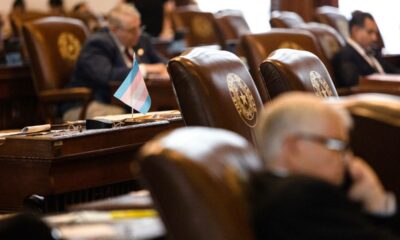Texas
Transgender Texas Kids Terrified After Governor Orders Parents Be Investigated for Child Abuse
Some experts doubt that classifying gender-affirming care as child abuse would hold up in court, but families still feel targeted by Gov. Greg Abbott’s new order

This article originally appeared in The Texas Tribune
 Every couple of months, Adamalis Vigil drives eight hours from the Rio Grande Valley to North Texas so her 13-year-old transgender daughter Adelyn can receive health care. They talk and sing the whole trip.
Every couple of months, Adamalis Vigil drives eight hours from the Rio Grande Valley to North Texas so her 13-year-old transgender daughter Adelyn can receive health care. They talk and sing the whole trip.
The care she receives there is unavailable in her hometown but pivotal to her sense of identity — and her mental health.
“It makes me feel who I truly am, and I don’t feel singled out for not being like other girls in school anymore,” Adelyn said. “It’s just very special for me that mom takes me all the way over there.”
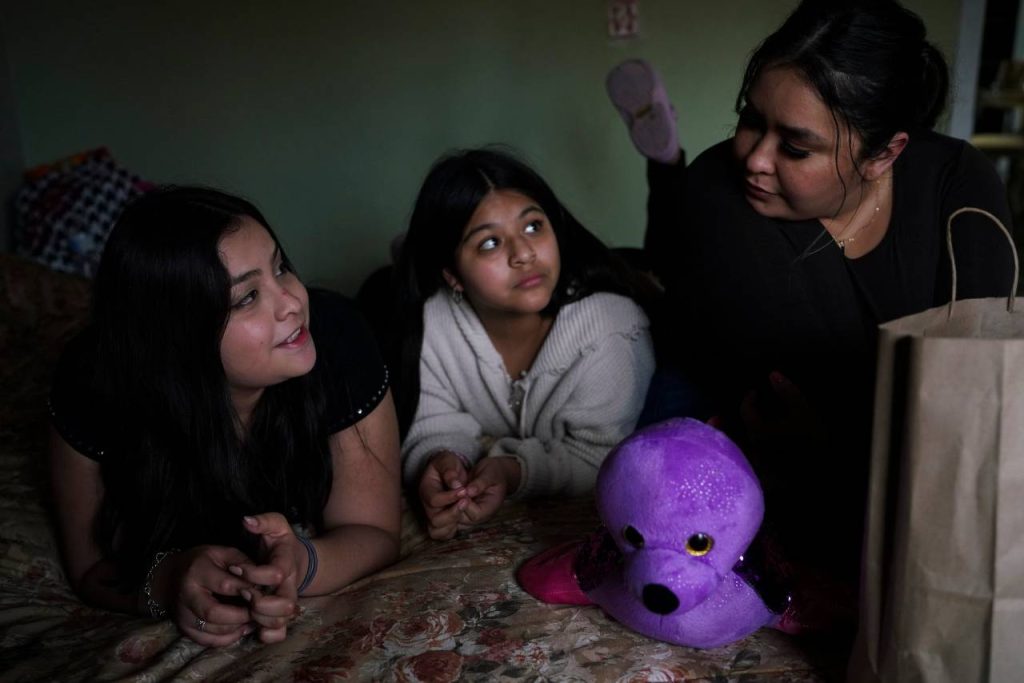
Adelyn — who stands tall at 5 feet, 5 inches and is outspoken in class — had been having panic attacks in school as she approached puberty. After she started seeing the doctors in North Dallas, the attacks stopped.
But last week, the panic attacks started again when Republican Gov. Greg Abbott — seven days before the GOP primary election in which he’s being accused of not being conservative enough — ordered state child welfare officials to launch child abuse investigations into reports of transgender kids receiving gender-affirming care.
Adelyn is terrified she will be forcibly separated from her mother. So great is her anxiety that she doesn’t want to sleep in her own bed. The Vigil family agreed to speak with The Texas Tribune but did not feel safe disclosing details about Adelyn’s medical care.
Abbott’s directive followed a nonbinding legal opinion from Attorney General Ken Paxton — who is also in the fight of his political life in Tuesday’s primary election — that said gender-affirming care constitutes child abuse.
Paxton’s opinion cited body modification surgeries that medical experts say are rarely, if ever, performed on children. But he also said it would be child abuse to administer gender-affirming care that is widely accepted by leading health care groups, like puberty blockers, which are completely reversible. Under the gender-affirming model of care, experts say, more time is spent allowing kids to socially transition instead of focusing on medical treatment.
Shelly Skeen, a senior attorney with Lambda Legal, said it’s highly unlikely that a judge would justify child abuse charges or removal of a child based solely on the use of gender-affirming therapy.
“Texas law has a very clear definition of what child abuse is, and it’s not this,” Skeen said.
Still, the attorney general’s opinion and governor’s directive drew fire from families, lawmakers, doctors, advocates and the White House, among others. Advocates say that calling gender-affirming therapy child abuse could lead to it being weaponized in divorce cases, create legal issues for physicians and therapists who treat transgender youth and empower people to attack the young people themselves — as well as the family members and others who support them.
“It’s not a far stretch to think that you could be harassed, assaulted, killed,” said W. Carsten Andresen, an associate professor of criminal justice at St. Edward’s University in Austin.
Child abuse investigations based on gender-affirming care are almost unheard of in Texas. Officials at the Texas Department of Family and Protective Services say that there have been three reports last week “meeting the description in the AG opinion and Governor’s directive” but offered no other details. No investigations have been launched, officials said.
But families with transgender kids and their advocates say even an attempt at criminalizing certain care further stigmatizes an already vulnerable group of Texans. The officials’ moves also can block access to treatments that can prevent suicide and severe depression caused in part by gender dysphoria — discomfort related to feeling a disconnect between one’s personal gender identity and the gender assigned at birth.
A recent study showed that more than 40% of transgender youth attempt suicide. The rate of suicide attempts among transgender youth is three times higher than among their cisgender counterparts, according to recent studies by the U.S. Centers for Disease Control and Prevention.
And the moves now leave Texas families with transgender children choosing between getting their children health care that medical experts recommend or possibly facing a child protective services investigation.
“I know I have to fight. I know I have to speak up. I know I have to show up for her. But how do I alleviate her stress when I’m stressed?” Adamalis said. “The fact that she has to do the fighting, too — it’s just terrible. She had to mature so much faster than kids her age.”
Riding a wave of anti-trans politics
Abbott and Paxton have spent the past year reflecting and stoking anti-transgender sentiment among voters — many of them stirred by right-wing media. The public pressure was so intense that a Dallas program that specialized in helping transgender young people was formally dissolved.
In his statement this week, Abbott even called on other Texans to act as watchdogs and report any parents for abuse if they believe the parent is supporting their child’s gender transition with professional help.
For years, the GOP-dominated Texas Legislature has targeted transgender Texans. In 2017, lawmakers unsuccessfully sought to ban people from using bathrooms that don’t match the sex they were assigned at birth. Last year, they succeeded in limiting athletic participation by transgender students. Last year during the regular legislative session, Texas filed more anti-LGBTQ bills than any other state legislature, according to Equality Texas, which tracks such legislation.
Among the proposals was a bill that would explicitly classify some gender-affirming care as child abuse. The Texas Senate passed the bill, but the legislation died in the House.
The opinion and new directive that aim to achieve the same effect without a law passing further stigmatizes an already marginalized group by normalizing speech and actions that target them, Texas House Democrats wrote this week in a letter blasting the comments by Abbott and Paxton.
“Transphobic and false statements like those made by the Governor and the Attorney General have produced an unsafe environment in our state that has forced families to flee to protect their transgender kids, adversely affected the mental health of gender expansive youth, and perpetuated an epidemic of violence against transgender Texans, especially Black trans women,” the letter from several Democratic lawmakers read.
On Thursday, district attorneys from five Texas counties — including Dallas, Bexar, Harris and Travis — took to Twitter to bash the directives as “anti-trans” and “life-threatening” and saying they would not treat gender-affirming actions as abuse.
“We want to assure our residents with transgender children that they are safe to continue seeking the care their children need,” a joint statement said.
Harris County District Attorney Kim Ogg said she would not prosecute “any parent, any facility, or anyone else for providing medically appropriate care to transgender children.”
“As a member of the LGBTQ community myself, I am particularly sensitive to the invidious nature of this order — it turns family members against each other at the expense of their children,” Ogg said in a statement. “It is a remnant of a hateful past that I had hoped our society had matured beyond.”
Second-guessing more care
Since Adelyn’s mother sat her down and told her about the governor’s order, the teen has been reconsidering whether she wants to go to her next doctor’s appointment. She has been scrolling through TikTok videos about the order until her mother comes home from work. On Thursday, she tried to watch a Percy Jackson movie as a distraction, but the fear has been getting to her.
“When I’m at work, she keeps calling and calling: ‘When are you going to be home and how long? How much longer? Are you almost home?’” Adamalis said. “It affects her in that sense that she wants to feel that kind of security and feel safe around me.”
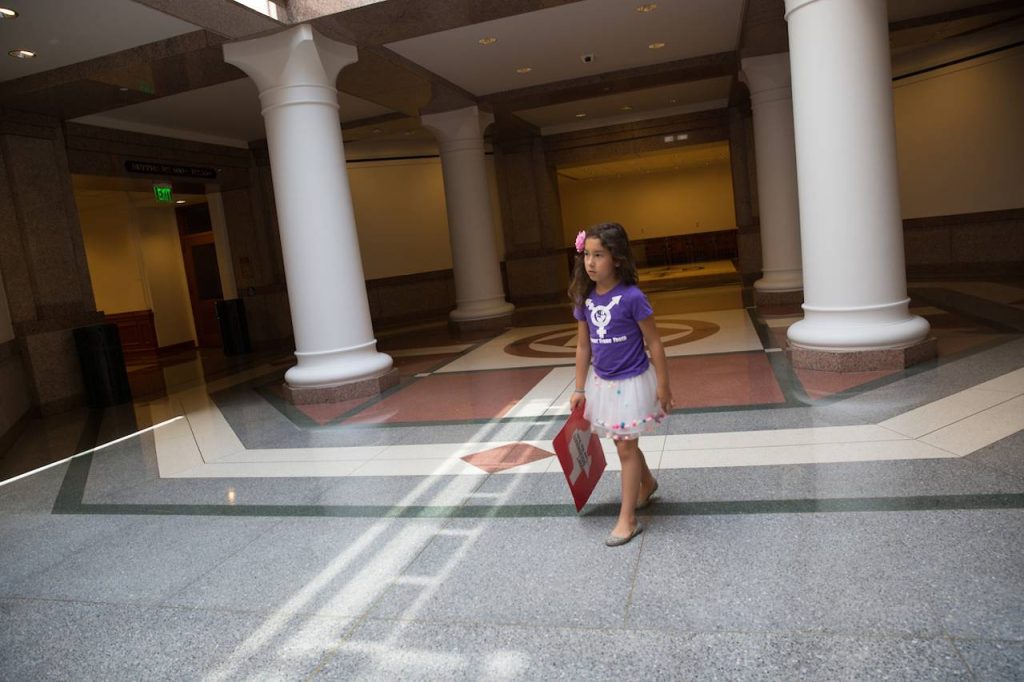
Five years ago, Libby Gonzales, a transgender girl, and her family told Texas lawmakers about how she never wanted to be forced into the boys’ bathroom at school, and that the idea scared her. They traveled to the Capitol to speak out against the now-infamous “bathroom bill,” which would have limited which public bathrooms transgender Texans can use. That legislation, though, died despite several attempts at getting it through the Legislature.
“I am 7 years old and I am transgender,” the nervous girl told the powerful state senators looking down at her from the dais in 2017. “Please keep me safe. Thank you.”
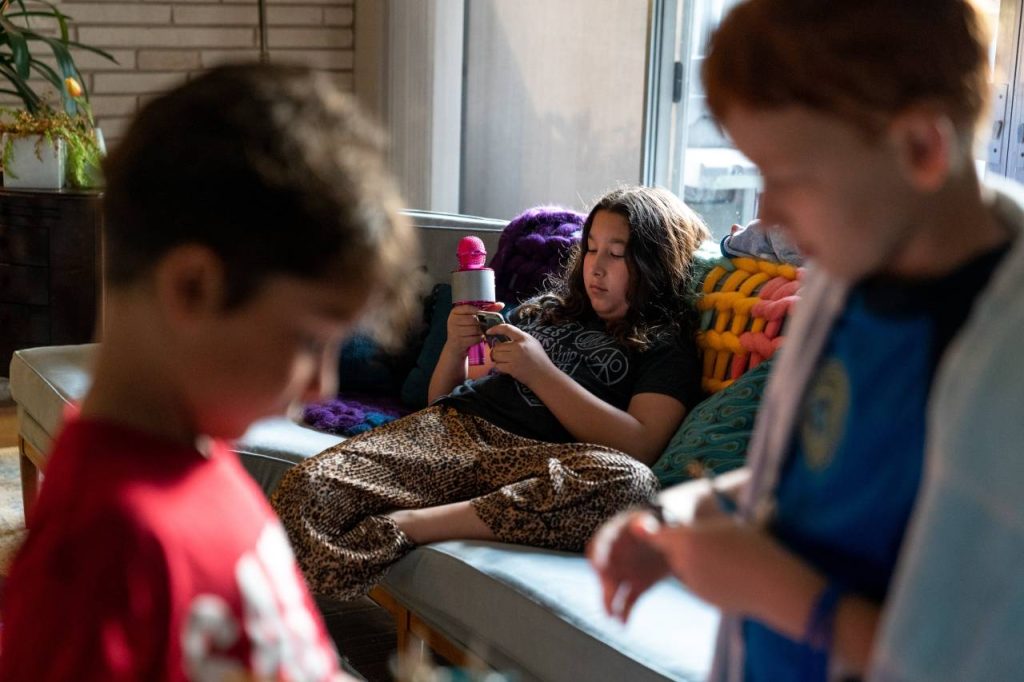
Today, Libby, now 11, and her family do not feel safe confirming or denying her experience with gender care anymore.
Her family — outspoken opponents of Texas Republicans’ near-constant efforts to curtail the rights of her daughter and other transgender youth — are now afraid that their efforts to support Libby will be called criminal by the most powerful men in the state.
As a result of the directive, Rachel Gonzales, Libby’s mother, has developed plans in case Texas Child Protective Services shows up at her Dallas home.
“There are so many hypotheticals that my husband and I talked through.” Gonzales said. “We have to have a plan in place. It also just helps me sleep at night.“
Skeen, the Lambda Legal attorney, said political rhetoric against transgender children is already driving families out of the state. But the Gonzales family said they are here to stay.
“My daughter is a fifth-generation Texan. We’re simply not leaving our home because of some bullies in the Texas [Legislature],” Gonzales said.
Extremely rare
While child abuse investigations of gender-affirming care are rare, there is at least one well-known example: a DFPS investigation into the family of a transgender child over the use of gender-affirming therapy, a bitter custody battle fueled by the blogger father of a 7-year-old girl who was assigned male at birth.
In 2019, Abbott and Paxton demanded that the state’s child welfare agency investigate whether the child’s mother was committing abuse by letting the child present as a girl. At the time, the move alarmed an already fearful community of parents of transgender children.
In that case, in which no surgical or hormonal procedures were used, child welfare officials ruled out child abuse and closed the investigation. The father, Jeff Younger, lost custody of his two children in the divorce, according to his website.
Younger is now running for the Republican nomination to the Texas House in his Flower Mound district in Tuesday’s primary. He could not be reached for comment.
In their statement this week, Texas House Democrats said gender-affirming therapy is still legal for transgender youth and supported by medical professionals and that mandatory reporting laws had not changed.
And in spite of child welfare officials saying earlier this week that they would comply with Abbott’s orders, the Democratic lawmakers said no government agency “is obligated to comply with the directive of the Governor or enforce the false assertions made by the Attorney General.”
CPS investigations are only launched if “an allegation is reported, and if the allegation meets the legal definition of abuse or neglect,” said DFPS spokesperson Patrick Crimmins.
In general, CPS investigators who find evidence of abuse may decide to set up services for the family to remove the threat to the child or stage some other intervention. In extreme cases, they may ask for an order from a judge to either temporarily or permanently remove children from the home.
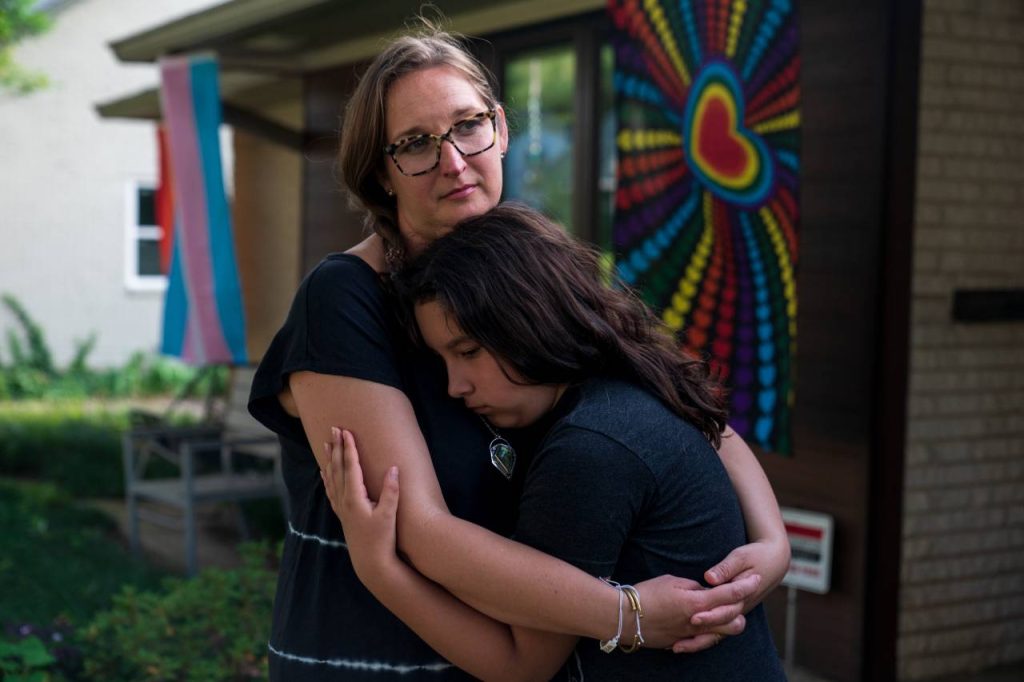
Their worst fear
Still, transgender kids Libby knows “are freaking out, coming home from school crying. I mean, she also has cried a lot,” Rachel Gonzales said. “That would cause irreparable harm to any family and any child to remove a kid from their home in a state where the government is very intentionally trying to hurt them.”
Even an investigation itself can be traumatic, life-altering and invasive, Andresen said. A DFPS investigator may interview family members and others familiar with a family or the child in order to decide whether there is reason to believe abuse is taking place or whether to rule it out, among other possible outcomes.
“Parents that have the money and resources are seriously thinking about looking to move outside of Texas,” said Andresen, whose wife sometimes works with transgender families in her job as a family attorney. “Even if there is no legal grounds, why would you stay here with somebody threatening to investigate you?” Also, any protection under the law could be wiped away easily if Texas lawmakers — an increasingly conservative bunch — decide to change the code, which could effectively make gender-affirming therapy for minors illegal in Texas.
Adelyn’s care has “really been life-changing” for the Rio Grande Valley girl, her mother said.
“How is that considered child abuse to accept them and love them?” Adamalis Vigil asks. “How can they overstep their power and try to come and tell me how I should love my child?”
Karen Brooks Harper contributed to this story.
Disclosure: Equality Texas has been a financial supporter of The Texas Tribune, a nonprofit, nonpartisan news organization that is funded in part by donations from members, foundations and corporate sponsors. Financial supporters play no role in the Tribune’s journalism. Find a complete list of them here.
The Texas Tribune is a nonpartisan, nonprofit media organization that informs Texans — and engages with them – about public policy, politics, government and statewide issues.
Education
Feds investigate another Texas school district for its gender identity mandate
Katy ISD’s board voted this past fall to require staff to notify parents if their child wants to use a different pronoun or identifies as a different gender.

This article originally appeared in The Texas Tribune
 The U.S. Department of Education’s Office for Civil Rights opened an investigation Monday into Katy Independent School District’s gender identity policy on the basis of gender harassment under Title IX. The investigation came nine months after the Houston Landing reported that the district adopted a policy that notifies parents if their child requests to use a different name or pronouns at school.
The U.S. Department of Education’s Office for Civil Rights opened an investigation Monday into Katy Independent School District’s gender identity policy on the basis of gender harassment under Title IX. The investigation came nine months after the Houston Landing reported that the district adopted a policy that notifies parents if their child requests to use a different name or pronouns at school.
Katy ISD did not respond to a request of how many parents have been notified this year under the new policy, which requires staff to inform parents that students are transgender or ask to use different names or pronouns.
The Houston Chronicle reported in December that the district had notified parents at least 23 times since the policy was adopted.
The gender identity policy also bars schools from teaching “gender fluidity” and denies students from competing in sports with the gender they identify with, which mirrors state legislation already regulating K-12 athletics.
Students Engaged in Advancing Texas, a student-led advocacy group, filed a complaint with the U.S. Department of Education in November regarding the policy. Katy ISD graduate and member of SEAT Cameron Samuels labels the investigation as a win against the conservative policies being passed in the district.
“Elected solely on platforms to target marginalized students, far-right school board candidates accomplished exactly what they were elected to do: weaponize identity and neglect students’ educational needs,” they said.
Title IX prohibits sex-based discrimination in educational settings or federally funded activities. Gov. Greg Abbott has loudly voiced his opposition to the federal law recently ordering the Texas Education Agency to disregard the Biden administration’s expansion of Title IX.
“The district is committed to offering equal educational opportunities to our entire community,” a spokesperson from Katy ISD told the Tribune in a response to the investigation. “While we have received the OCR filing and deny any wrongdoing, we are committed to remaining fully cooperative and responsive throughout the process.”
Victor Perez, Katy ISD board president and proponent of the policy, argued that the policy was “mischaracterized” by community members as an attack on its queer and transgender students and instead relieves the burden for staff withholding information from parents. The policy was passed at a board meeting in August with a vote of 4-3 after four hours of public comment.
Alastair Parker, a member of the Cinco Ranch High School Gender-Sexuality Alliance, spoke at the board meeting in opposition to the policy.
Parker and others argued that the policy infringes on the rights of transgender kids to express themselves and opens them to potential harm if they are outed to transphobic parents or caregivers.
Johnathan Gooch from Equality Texas, a nonprofit advocacy group for LGBTQ+ Texans, said he hopes students recognize their power to report policies like this in the wake of the increasing number of legislation targeting LGBTQ+ youth.
This isn’t the first instance in Texas of a gender related policy being investigated on the federal level. Carroll ISD in Tarrant County was reported to have eight open investigations last February after it eliminated protections over race, religion, gender and sexual orientation.
There are documented mental health benefits to using preferred pronouns. A research team at the University Texas at Austin conducted a study in which they concluded that students in gender-affirming environments report 71% fewer symptoms of severe depression, a 34% decrease in reported suicidal ideation and a 65% decrease in suicide attempts.
“When students place their trust in teachers and school administration, the school has a duty to preserve that trust,” Gooch said. “That duty requires schools to ensure that no disclosure would place a student in harm’s way.”
Parker has been out as a transgender man since the seventh grade and is supported by his father, who he resides with. He acknowledged that this isn’t the case for many of his classmates as some have parents that are less accepting.
His teachers have gone by his preferred name and pronouns for his entire high school experience. But since the policy has been enacted, he has seen some of his peers go by their deadnames fearing that their parents would be notified.
Over the past year, other schools across the state have adopted similar policies.
Keller ISD, which is also in Tarrant County, passed a policy in late June that prevents students from using their preferred name and pronouns or using restrooms with the gender they identify with.
The policy was met with retaliation from the Texas American Civil Liberties Union, writing in a letter to the district that the policy is “deeply invasive and unlawful for school administrators to interrogate students’ private medical information in this way.”
As the end of the school year nears, Parker observed the policy being enforced at varying levels of severity by teachers. The passing of legislation or policy like this deters from the ongoing health crisis for queer and transgender youth and is wholly unnecessary, he said.
“If a child’s not telling their parents something like that, it’s for a reason,” he said. “I know that most of the people who are in favor of this are the ones who bounce off whatever their parents have told them to repeat.”
Disclosure: Equality Texas has been a financial supporter of The Texas Tribune, a nonprofit, nonpartisan news organization that is funded in part by donations from members, foundations and corporate sponsors. Financial supporters play no role in the Tribune’s journalism. Find a complete list of them here.
The Texas Tribune is a nonpartisan, nonprofit media organization that informs Texans — and engages with them – about public policy, politics, government and statewide issues.
Amarillo
Appeals court considers whether West Texas A&M drag show was unconstitutionally banned
University President Walter Wendler canceled a drag performance last year, claiming such shows “denigrate and demean women.”
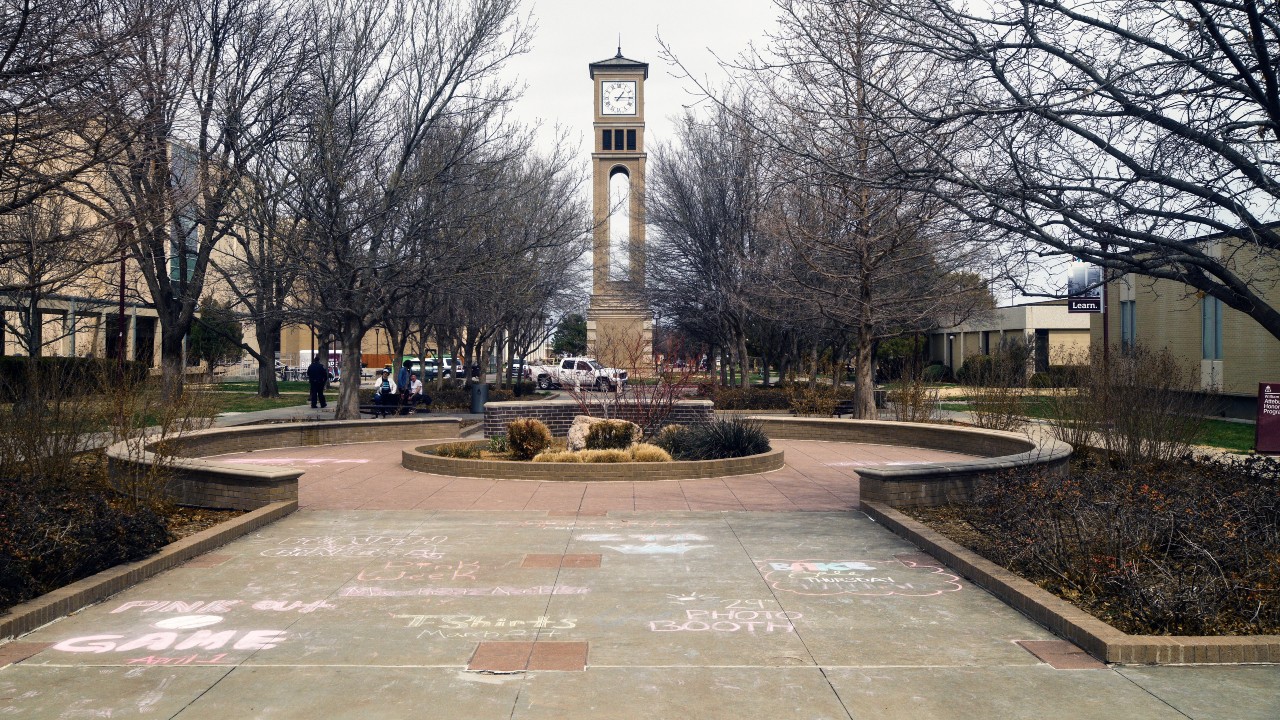
This article originally appeared in The Texas Tribune
 A federal appeals court considering whether West Texas A&M University’s president violated the First Amendment when he canceled a campus drag show last year focused many of their questions Monday on a U.S. Supreme Court ruling that upheld campus non-discrimination policies.
A federal appeals court considering whether West Texas A&M University’s president violated the First Amendment when he canceled a campus drag show last year focused many of their questions Monday on a U.S. Supreme Court ruling that upheld campus non-discrimination policies.
But the panel of three judges used that 2010 case — which said universities can require groups to admit LGBTQ+ students — to suggest that school officials could also ban drag shows because some people find the performances offensive to women.
A lawyer representing a group of West Texas A&M students who’ve twice attempted to host a drag show on campus argued before the 5th U.S. Circuit Court of Appeals Monday that President Walter Wendler discriminated based on viewpoint and censored speech when canceling the performances.
In March 2023, Wendler banned drag shows in response to a student fundraiser that featured drag performers. The president argued the performances “denigrate and demean women,” and shouldn’t be allowed on the public university’s campus.
In September, a federal judge said Wendler acted within his authority to cancel the drag show. In his opinion, U.S. District Judge Matthew Kacsmaryk wrote, at “this point in Free Speech jurisprudence, it is not clearly established that all ‘drag shows’ are categorically ‘expressive conduct.’”
Last month, students with WT Spectrum, the student group at the university, hoped to hold another drag show on campus — to show support for the LGBTQ+ community in a staunchly conservative corner of Texas.
With Wendler’s campus-wide ban still in place, the Supreme Court declined to intervene and the president again ordered the fundraiser from taking place.
The panel of judges hearing the appeal Monday were James Dennis, James Ho and Leslie Southwick.
Many of their questions centered around Christian Legal Society v. Martinez, a case in which the Supreme Court upheld a policy of the University of California, Hastings College of the Law, that bars student groups from excluding members based on status or beliefs.
In 2010, the Supreme Court affirmed that Hastings’ policy does not violate the First Amendment rights of CLS, a group of students that wanted to be officially recognized on campus while not allowing people who engage in “unrepentant homosexual conduct” from joining.
The 5th Circuit judges Monday seemed to suggest that Wendler’s ban was no different from the policy at the center of the 2010 Supreme Court case. One of the judges, who didn’t identify themselves before speaking, asked if plaintiffs intended to use the case in question to overturn CLS.
“Maybe we should overturn CLS?” one of three judges said. “Many people would like CLS overturned.”
Ho equated the policy upheld in CLS with Wendler’s drag ban. He said both intend to make everyone feel included, but the policies have the consequence of targeting one group. In CLS’ case, he said that Christians were singled out on Hastings’ campus for not allowing LGBTQ+ individuals to join. Ho said that previous groups on Hastings’ campus could exclude members, but CLS was singled out by the university’s non-discrimination policy.
JT Morris, senior attorney for the Foundation for Individual Rights and Expression who represented the students, argued that the judges were comparing “apples to oranges” between the two cases.
Morris argued CLS is about a content-neutral policy, while Wendler was clearly discriminating based on viewpoint.
“The First Amendment does not allow the government to use the subjective term ‘offensive’ to restrict speech,” Morris said.
Joseph N. Mazzara, a lawyer with the Texas Attorney General’s Office who represented Wendler, said the students had not suffered any injury as a result of the no-drag policy because there was no future event featuring drag performers planned. Additionally, Mazzara said Wendler’s policy carried no criminal penalties and students could host drag performances off campus.
Mazzara said Wendler’s ban was not a free speech violation, but rather it was akin to banning certain conduct, like skateboarding on the grounds of a monument. He said drag shows constituted conduct, not speech.
“They’re able to do everything they want to do, they’re able to say all the speech they want to [say],” Mazzara said, referring to the student group WT Spectrum. “They just can’t do this one particular thing in this one particular place.”
A judge asked Mazzara how the university would have treated drag shows put on by other student groups, such as a fraternity. The judges seemed to agree with Mazzara that Wendler’s restriction did not target a specific viewpoint.
“If a Christian legal group wanted to have a ‘Drag for Jesus’ event that would also be banned,” Mazzara said.
One judge suggested that some drag shows are offensive to the transgender community, and thus Wendler’s ban would equally protect that population from offensive performances.
Allison Marie Collins, another lawyer from the Attorney General’s Office representing other defendants named in the lawsuit, argued the appellate judges should not impose any restrictions on Texas A&M system Chancellor John Sharp or West Texas A&M Vice President for Student Affairs Christopher Thomas. She argued an injunction against Sharp or Thomas would be overbroad, because it’s clear that only Wendler has acted to stop these shows.
“Neither Chancellor Sharp nor Dr. Thomas have remotely engaged in viewpoint discrimination, exclusion from a public forum or a prior restraint complaint to speech,” Collins said.
In his rebuttal, Morris argued the plaintiffs have standing over Sharp because he has the authority over Wendler to put an end to this restriction on free speech.
“He has the authority to do what’s best for the campus,” Morris said of Sharp. “He should have put an end to this prior restraint, which shouldn’t have lasted a day, and has now lasted a year.”
Disclosure: Texas A&M University and West Texas A&M University have been financial supporters of The Texas Tribune, a nonprofit, nonpartisan news organization that is funded in part by donations from members, foundations and corporate sponsors. Financial supporters play no role in the Tribune’s journalism. Find a complete list of them here.
The Texas Tribune is a nonpartisan, nonprofit media organization that informs Texans — and engages with them – about public policy, politics, government and statewide issues.
Education
Under Katy ISD gender policy, student identities disclosed to parents 19 times since August
Public records obtained by the Houston Landing offer the first glimpse at how often the new, hotly contested policy has been used to disclose LGBTQ+ students’ identities to parents — even if the students aren’t ready.
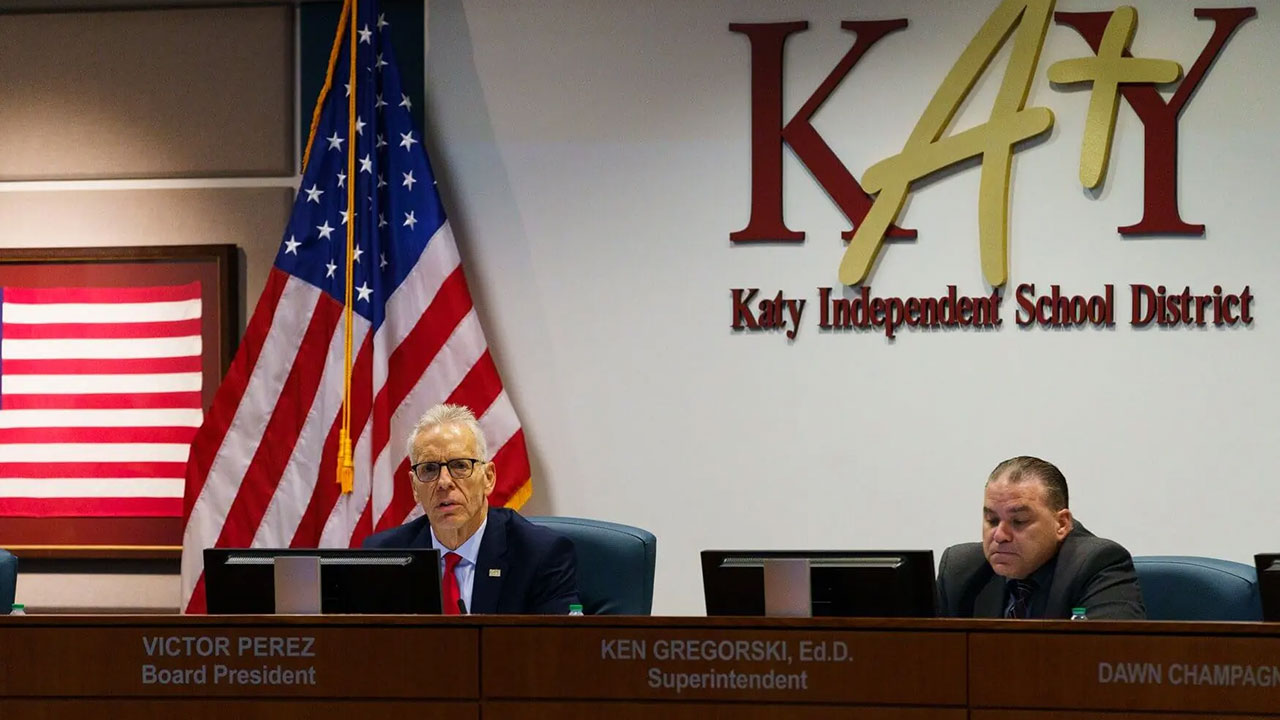
 Since narrowly passing a controversial gender policy two months ago, Katy Independent School District has sent 19 notifications informing parents that their child identified themselves as transgender or requested to use different names or pronouns at school.
Since narrowly passing a controversial gender policy two months ago, Katy Independent School District has sent 19 notifications informing parents that their child identified themselves as transgender or requested to use different names or pronouns at school.
The number of parental notifications, obtained by the Houston Landing through a public records request, is the first glimpse at how often the new, hotly contested policy has been used to disclose LGBTQ+ students’ identities to parents — even if the students aren’t ready.
So far, the district averages a notification to a parent roughly once every three days.
The district’s policy requires staff to inform parents if their student requests to use different pronouns or names, or if they identify themselves as transgender — and obtain written parental consent to comply with the request. It also prohibits employees from asking for students’ preferred pronouns and discussing “gender fluidity,” and requires students to use bathrooms that align with their sex assigned at birth.
Jarred Burton, a student leader at Tompkins High School’s Sexuality and Gender Alliance, said the number of notifications already sent to parents is both depressing and surprising. Critics, including Katy parents, LGBTQ+ students and local advocates, have blasted the policy as a dangerous measure with the potential to expose students’ gender identities to unsupportive parents, further harming a community that already faces a higher risk of mental health issues than their peers.
“It’s just sad to see this actually happening,” Burton said. “It shows that (the policy) is not a bluff.”
Board members who supported the policy hailed it as a measure that would center parents’ right to be informed about their child’s gender identity and protect teachers from making uncomfortable decisions about concealing such information from parents.
“(Parents are) supposed to be looking after the health and welfare of their child,” Board President Victor Perez said at a late August meeting. “Withholding that information from the parent, that is a great burden on staff.”
It’s unclear how many parents were already aware of their child’s gender identity. District officials also did not make any board members available for an interview on the matter.
“The policy is intended to provide parents and guardians the opportunity to be made aware of their child’s name change request, and the opportunity to grant or deny approval of said request,” Katy spokesperson Nick Petito said in a statement Wednesday.

Ash Thornton, a transgender man and a junior at Tompkins High School, said the number of notifications being sent home will discourage LGBTQ+ students from feeling safe to explore their identities.
“It signals that it’s something bad, them being transgender or expressing gender in a way that’s different,” Thornton said. “It definitely messes up student-teacher relationships.”
Employees are not required to comply with a student’s name or pronoun change even if a parent gives consent, the policy states.
One staff member on every campus is responsible for processing and sending notifications to parents and guardians, Petito said. The policy makes an exception for “cases of suspected abuse.”
Students belonging to LGBTQ+ clubs have told the Landing the policy has caused their schools to become less of a safe space and has instilled fear among LGBTQ+ youth in Katy.
“There’s just been this looming cloud of dread over a lot of people,” Burton said in a September interview. “There’s gonna be a lot of people that get in trouble by their parents or get hurt. … It just sometimes keeps me up at night a little bit because it’s hard to imagine how much hate people can have to pass something like this.”
The number of notifications sent to parents to date leaves Thornton to wonder what else is to come.
“It’s only been two months and there’s already 19, how many more people are going to be affected by even just the end of the semester?” he said.
The Houston Landing is a nonprofit newsroom devoted to public service journalism for all Houstonians.
This article first appeared on the Houston Landing and is republished here with permission.









